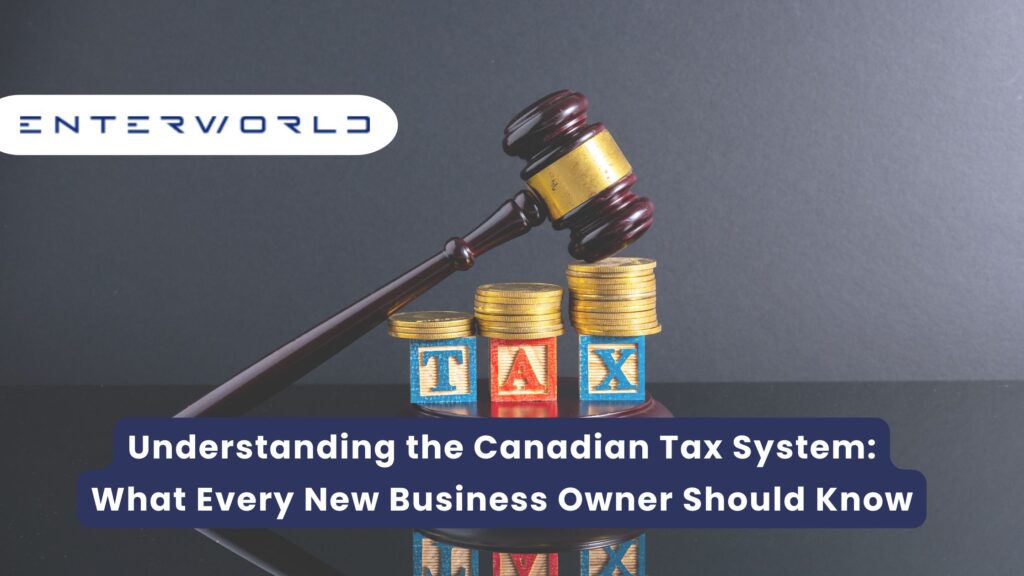Starting a business in Canada is an exciting step, whether you’re a Canadian resident or a foreign entrepreneur. With its stable economy, skilled workforce, and strong infrastructure, Canada provides a welcoming environment for startups and small businesses alike. However, one key area that every new business owner must navigate carefully is taxation.
Understanding the Canadian tax system is essential to stay compliant, avoid penalties, and take advantage of available tax benefits. From corporate income taxes to sales tax obligations, here’s what you need to know before setting up a business in Canada.
1. Federal vs. Provincial Tax Responsibilities
Canada’s tax system operates at both the federal and provincial or territorial levels. This means that most businesses will be responsible for paying taxes to the Canada Revenue Agency (CRA) as well as to their respective province or territory.
Federal Tax
All businesses in Canada are subject to federal corporate income tax. The general federal corporate tax rate is 15%.
Provincial/Territorial Tax
Each province or territory levies its own corporate tax on top of the federal rate. These rates vary by location and by type of business, with some offering lower rates for small businesses.
For example:
-
In Ontario, the combined corporate tax rate for small businesses is approximately 12.2%
-
In British Columbia, it’s around 11%
-
In Alberta, it can go as low as 8% for eligible businesses
Knowing your province’s rate helps you estimate your overall tax liability more accurately.
2. Types of Business Structures and Tax Implications
Your chosen business structure impacts how you’re taxed.
Sole Proprietorship
Income is reported on your personal tax return. You’re taxed at your individual income tax rate.
Partnership
Each partner includes their share of business income on their personal tax return. The business itself doesn’t pay tax directly.
Corporation
A corporation is a separate legal entity. It files its own tax return and pays corporate income tax. Owners (shareholders) only pay personal tax on dividends or salaries received from the company.
Most small and medium-sized enterprises (SMEs) in Canada opt for incorporation due to limited liability and tax deferral advantages.
3. GST/HST – Goods and Services Tax / Harmonized Sales Tax
If your business earns $30,000 or more in revenue in any 12-month period, you must register for the Goods and Services Tax (GST) or Harmonized Sales Tax (HST), depending on your province.
-
GST (5%) applies federally across Canada
-
HST combines GST and provincial sales tax in some provinces (e.g., Ontario, Nova Scotia)
-
In provinces like Alberta, only GST is applicable
When to Register
You are required to register once your revenues cross $30,000. However, voluntary registration before this threshold can allow you to claim input tax credits (ITCs) for the GST/HST you pay on business expenses.
Filing Frequency
Depending on your revenue, you may file your GST/HST return monthly, quarterly, or annually.
4. Payroll Taxes and Employer Responsibilities
If you plan to hire employees, you must register for a payroll account with the CRA and deduct the following from employee wages:
-
Canada Pension Plan (CPP) contributions
-
Employment Insurance (EI) premiums
-
Income tax withholdings
As an employer, you’re also responsible for matching CPP and contributing your share to EI. Payroll deductions must be remitted to the CRA regularly, along with the appropriate filings.
Non-compliance in payroll can result in significant penalties and interest, so it’s advisable to use payroll software or an accountant for accurate calculations.
5. Corporate Tax Filing Obligations
Corporations in Canada must file a T2 Corporate Income Tax Return annually, even if they don’t owe taxes or didn’t earn income.
Key deadlines:
-
File within 6 months after the end of the fiscal year
-
Taxes owing must be paid within 2 or 3 months of fiscal year-end (depending on company size)
You may also need to submit financial statements and schedules detailing income, deductions, and tax credits claimed.
6. Small Business Deductions and Tax Credits
Canada offers several tax incentives and deductions to help small businesses manage their tax burden:
-
Small Business Deduction (SBD): Reduces the corporate tax rate on the first $500,000 of active business income.
-
Capital Cost Allowance (CCA): Tax depreciation on eligible assets.
-
Scientific Research and Experimental Development (SR&ED) Tax Credit: For R&D-related spending.
-
Apprenticeship Job Creation Tax Credit: For hiring and training apprentices.
Understanding which deductions apply to your business can significantly reduce your tax liability.
7. Keeping Accurate Records
Good recordkeeping is not just a best practice—it’s a legal requirement in Canada. The CRA expects businesses to maintain clear and accurate records of all income and expenses for at least six years.
Your records should include:
-
Invoices and receipts
-
Bank statements
-
Payroll records
-
Tax filings and remittances
Poor documentation can lead to audits, denied deductions, and penalties.
8. Working with a Tax Professional
Navigating the Canadian tax system as a new business owner can be complex. Working with an accountant or tax advisor is highly recommended, especially if:
-
You’re not sure which structure to choose
-
You’re incorporating for the first time
-
You have employees
-
You’re claiming multiple tax credits or deductions
A good tax advisor can help you minimize tax legally, meet all filing deadlines, and stay compliant with federal and provincial laws.
Conclusion
Understanding the Canadian tax system is critical for new business owners. From choosing the right business structure and meeting your GST/HST obligations to filing corporate tax returns and accessing small business deductions, every step plays a role in your company’s long-term financial health.
Being proactive and informed will help you avoid costly mistakes, meet CRA expectations, and build a sustainable, compliant business from day one.
FAQs
1. Do I need to register for GST/HST if my business earns less than $30,000?
No, it’s not mandatory. However, voluntary registration allows you to claim back the GST/HST you pay on business-related expenses, which can be beneficial even if you’re under the threshold.
2. What is the corporate tax rate for small businesses in Canada?
Small Canadian-controlled private corporations (CCPCs) may qualify for a lower combined federal and provincial tax rate—typically between 9% and 15%—on the first $500,000 of active business income.
3. How can I reduce my business taxes in Canada?
You can reduce taxes by incorporating, claiming eligible deductions and tax credits, keeping detailed financial records, and working with a tax professional to optimize your filings.
Also Read: Minimum Investment Requirements for Residency by Investment Programs




